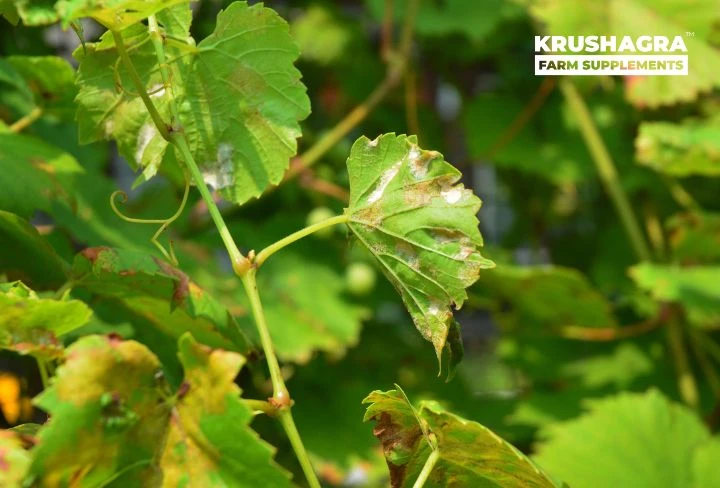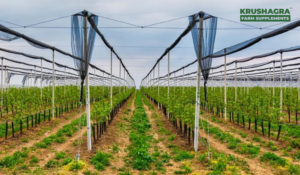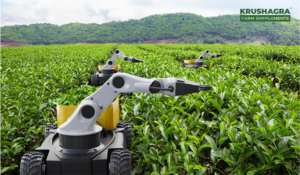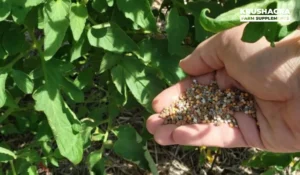Agriculture is a vital sector for human survival as it provides food, feed, and fiber for a rapidly growing population. However, pests and diseases are significant threats to agricultural productivity and can cause significant economic losses. Farmers have traditionally relied on synthetic pesticides to control pests and diseases, but these chemicals have harmful effects on the environment and human health. Biopesticides, on the other hand, are an eco-friendly and sustainable alternative to synthetic pesticides that can control pests and diseases without the negative side effects. This blog discusses the advantages of using biopesticides for controlling fungal and bacterial pathogens in agriculture.
What are Biopesticides?
Biopesticides are naturally occurring substances derived from plants, animals, and microorganisms that control pests and diseases. Biopesticides can be classified into three categories: microbial, plant-incorporated, and biochemical pesticides. Microbial pesticides contain live microorganisms such as bacteria, fungi, viruses, and protozoa that can control pests and diseases. Plant-incorporated pesticides are derived from genetically modified plants that produce toxins that can kill pests. Biochemical pesticides are naturally occurring substances such as pheromones, insect growth regulators, and plant extracts that can control pests and diseases.
Advantages of Biopesticides
Eco-friendly and sustainable
Biopesticides are eco-friendly and sustainable as they do not harm the environment or human health. Unlike synthetic pesticides, biopesticides are derived from natural sources, which means they can break down quickly and do not persist in the environment. This makes biopesticides an ideal solution for sustainable agriculture.
Specificity
Biopesticides are highly specific to the target pest or disease, which means they do not harm non-target organisms such as beneficial insects, birds, and mammals. This specificity reduces the risk of ecological imbalance and biodiversity loss.
Resistance management
Pests and diseases can develop resistance to synthetic pesticides, which makes them ineffective over time. Biopesticides, on the other hand, have a different mode of action that makes it difficult for pests and diseases to develop resistance. This makes biopesticides an effective tool for resistance management.
Cost-effective
Biopesticides are cost-effective as they require lower doses and have a longer residual effect than synthetic pesticides. This means farmers can reduce the number of pesticide applications, which reduces the cost of pest and disease control.
Improves soil health
Biopesticides can improve soil health by promoting the growth of beneficial microorganisms that can suppress soil-borne pathogens. This improves soil fertility and reduces the need for synthetic fertilizers.
Non-toxic to humans and animals
Biopesticides are generally considered safe and non-toxic to humans and animals, which reduces the risk of accidental exposure and poisoning. This is particularly important in situations where pesticides are used in residential or public areas.
Shorter pre-harvest intervals
Biopesticides have shorter pre-harvest intervals than synthetic pesticides, which means farmers can apply them closer to the time of harvest without violating safety regulations. This is important for crops that require frequent pest and disease control measures.
Improved product quality
Biopesticides can improve the quality of agricultural products by reducing the levels of harmful residues and enhancing the nutritional content of crops. This can lead to higher market value and consumer demand for the products.
Complementary to other pest management strategies
Biopesticides can be used in combination with other pest management strategies such as crop rotation, biological control, and cultural practices. This can enhance the effectiveness of pest control and reduce the reliance on synthetic pesticides.
Easy to apply
Biopesticides are easy to apply and can be integrated into existing pest management programs with minimal disruption. They can be applied using conventional spraying equipment, which reduces the need for specialized equipment or training.
Conclusion
In conclusion, biopesticides are an eco-friendly and sustainable alternative to synthetic pesticides that can control pests and diseases without the negative side effects. Biopesticides have many advantages, including specificity, resistance management, cost-effectiveness, and soil health improvement, making them an ideal solution for sustainable agriculture. Farmers can benefit from using biopesticides by reducing the cost of pest and disease control and improving the quality of their crops.






